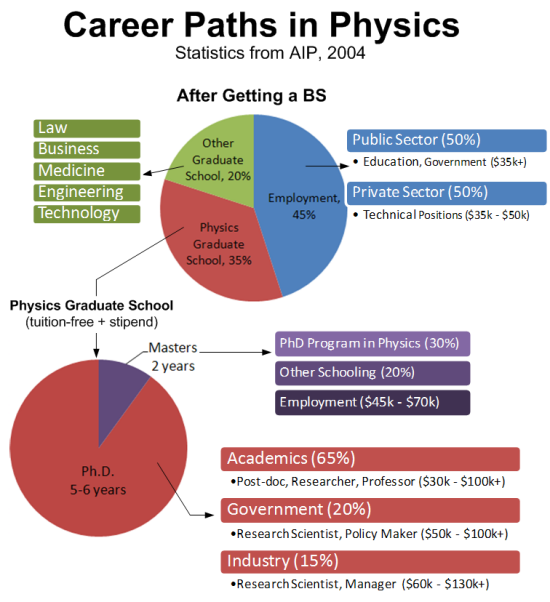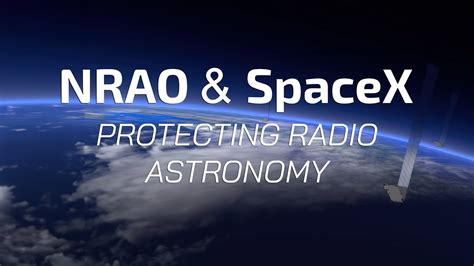Careers Involving Astronomy

Astronomy, the captivating study of celestial objects and phenomena, offers a diverse range of career paths that go beyond the stereotypical image of astronomers gazing through telescopes. The field of astronomy is expansive and interdisciplinary, with numerous opportunities for individuals passionate about exploring the universe. From research and academia to space exploration and technology development, astronomy careers are as varied as the cosmos itself.
In this comprehensive guide, we will delve into the exciting world of careers involving astronomy. We will explore the diverse roles, skills, and qualifications required, as well as the rewarding opportunities that await those with a deep fascination for the stars and a desire to contribute to our understanding of the universe.
The Diverse Landscape of Astronomy Careers

Astronomy, often referred to as the oldest of the natural sciences, has evolved from ancient stargazing practices to a highly specialized field with numerous specialized roles. Here’s an overview of the diverse landscape of astronomy careers:
Research and Academia
At the heart of astronomy lies research and academia, where astronomers dedicate their careers to expanding our knowledge of the universe. These professionals engage in a range of activities, including:
- Observational Astronomy: Observing celestial objects and events using advanced telescopes and instrumentation. Researchers analyze data to uncover insights about the universe’s origins, evolution, and composition.
- Theoretical Astronomy: Developing theoretical models and simulations to explain astronomical phenomena. Theoretical astronomers work to bridge the gap between observation and understanding.
- Astrophysics: A specialized field combining astronomy and physics, astrophysics delves into the physical processes occurring within stars, galaxies, and other celestial bodies. It involves intricate calculations and modeling.
- Planetary Science: Focusing on the study of planets, moons, and other bodies within our solar system, planetary scientists investigate their formation, composition, and potential for supporting life.
Astronomers in research and academia often work in universities, observatories, and research institutes, contributing to the advancement of knowledge and mentoring the next generation of astronomers.
Space Exploration and Mission Science
Space exploration is an exciting field that offers unique opportunities for astronomy enthusiasts. Professionals in this domain work on various aspects of space missions, including:
- Mission Planning and Management: Involving the intricate process of designing, planning, and executing space missions. Mission planners and managers oversee the entire process, from concept to launch and beyond.
- Spacecraft Operations: Responsible for operating and controlling spacecraft during their missions. This role requires expertise in spacecraft systems, communication, and data acquisition.
- Data Analysis and Interpretation: A crucial aspect of space exploration, data analysts and interpreters scrutinize the data collected by spacecraft to extract valuable scientific information.
- Astronauts and Spaceflight Specialists: For the adventurous, becoming an astronaut offers the ultimate opportunity to explore space firsthand. Astronauts undergo rigorous training and contribute to scientific research and technological advancements during space missions.
Space exploration careers often involve collaboration with government agencies, space organizations, and private companies driving the frontier of space exploration.
Astronomy Education and Outreach
Sharing the wonders of astronomy with the public and inspiring the next generation of scientists is a rewarding career path. Astronomy educators and outreach specialists engage in various activities, such as:
- Teaching and Lecturing: Delivering engaging astronomy lessons in schools, colleges, and universities. Educators play a vital role in nurturing curiosity and fostering a passion for science.
- Public Talks and Presentations: Conducting informative and captivating public talks, workshops, and events to promote astronomy and space exploration.
- Museum and Planetarium Education: Working in museums, planetariums, and science centers to create interactive exhibits and experiences that bring astronomy to life for visitors of all ages.
- Online Content Creation: Utilizing digital platforms to create educational astronomy content, including blogs, videos, and podcasts, to reach a global audience.
Astronomy educators and outreach specialists play a crucial role in fostering a scientifically literate society and inspiring future astronomers.
Astronomy-Related Industries
Astronomy’s impact extends beyond the realms of research and academia, influencing various industries. Here are some examples of astronomy-related careers:
- Aerospace Engineering: Professionals in this field design and develop spacecraft, rockets, and satellites, contributing to the technological advancements that enable space exploration.
- Astrotourism and Space Tourism: With the rise of space tourism, professionals in this industry facilitate unique astronomical experiences for tourists, offering them the chance to witness celestial wonders.
- Remote Sensing and Geospatial Analysis: Utilizing satellite imagery and data to study Earth’s environment, climate, and natural resources. This field has applications in various industries, including agriculture, urban planning, and disaster management.
- Astrobiology: A fascinating interdisciplinary field exploring the origins and potential for life beyond Earth. Astrobiologists study extreme environments, search for extraterrestrial life, and contribute to our understanding of the universe’s habitability.
Skills and Qualifications for Astronomy Careers

The diverse career paths in astronomy require a unique set of skills and qualifications. Here’s an overview of the key competencies and academic backgrounds often sought after in astronomy professionals:
Academic Qualifications
Most astronomy careers require a strong academic foundation in science and mathematics. Here’s a breakdown of typical educational paths:
- Bachelor’s Degree: A bachelor’s degree in astronomy, physics, astrophysics, or a related field is often the minimum requirement for entry-level positions. Courses in mathematics, computer science, and engineering can also be advantageous.
- Master’s Degree: A master’s degree in astronomy or a related field is highly beneficial for advancing in research and specialized roles. It provides deeper knowledge and specialized skills.
- PhD: For research-intensive careers and academia, a PhD in astronomy or astrophysics is often necessary. PhD programs typically involve original research and contribute to the advancement of scientific knowledge.
Technical Skills
Astronomy careers often involve working with complex technologies and data. Proficiency in the following technical areas is highly valuable:
- Data Analysis and Programming: Proficiency in programming languages such as Python, R, or MATLAB is essential for analyzing astronomical data. Knowledge of statistical analysis and data visualization techniques is also advantageous.
- Telescope and Instrument Operation: Understanding how to operate telescopes and astronomical instruments is crucial for observational astronomers. Familiarity with telescope systems, detectors, and data acquisition processes is essential.
- Computational Astronomy: The ability to develop and utilize computational models and simulations is highly valued in theoretical astronomy and astrophysics. Knowledge of numerical methods and high-performance computing is beneficial.
- Software Development: Developing software tools and applications for astronomical research and analysis is a valuable skill. Proficiency in software engineering principles and languages like C++, Java, or JavaScript is advantageous.
Soft Skills
In addition to technical expertise, astronomy professionals often require a range of soft skills. Here are some key competencies:
- Communication and Collaboration: Effective communication and collaboration skills are essential for working with diverse teams, presenting research findings, and engaging with the public.
- Critical Thinking and Problem Solving: Astronomy often involves complex problem-solving, requiring analytical thinking, creativity, and the ability to interpret and apply scientific knowledge.
- Attention to Detail: Precision and attention to detail are crucial when working with intricate data, conducting experiments, or developing models and simulations.
- Adaptability and Resilience: The field of astronomy can be dynamic and ever-evolving, requiring professionals to adapt to new technologies, methodologies, and scientific discoveries.
Exploring Astronomy Careers: A Personal Journey
As someone with a deep passion for astronomy, I embarked on a journey to explore the diverse career paths within this fascinating field. From my experiences, I’ve gained valuable insights into the opportunities, challenges, and rewards that await those pursuing astronomy careers.
Research and Academia: Unlocking the Universe’s Secrets
My journey began in the realm of research and academia, where I had the privilege of working alongside renowned astronomers. In this domain, I witnessed the dedication and curiosity that drive astronomers to explore the unknown. Observational astronomers spent countless hours analyzing data from telescopes, uncovering the mysteries of distant galaxies and celestial events.
On the other hand, theoretical astronomers employed intricate mathematical models and simulations to explain the phenomena observed by their observational counterparts. Their work provided a deeper understanding of the universe's fundamental principles and the laws that govern its behavior.
My involvement in research and academia offered me the opportunity to contribute to groundbreaking discoveries and collaborate with experts from around the world. It was a rewarding experience that fueled my passion for astronomy and motivated me to pursue further studies and specialized roles.
Space Exploration: Pushing the Boundaries of Human Achievement
As my curiosity expanded beyond the confines of Earth, I became captivated by the realm of space exploration. The idea of contributing to humanity’s journey into the cosmos was exhilarating. I had the opportunity to work with space organizations and private companies, witnessing the intricate planning and execution of space missions.
Mission planners and managers demonstrated their expertise in orchestrating complex operations, from spacecraft design to launch and data acquisition. Their meticulous attention to detail and problem-solving skills were evident as they navigated the challenges of space exploration.
Working in space exploration provided me with a unique perspective on the technological advancements and scientific breakthroughs that drive our understanding of the universe. It was an inspiring experience that solidified my desire to continue contributing to the frontier of space exploration.
Astronomy Education and Outreach: Inspiring the Next Generation
My passion for astronomy led me to explore the realm of education and outreach, where I discovered the immense satisfaction of sharing my knowledge and inspiring others. As an astronomy educator, I had the opportunity to engage with students of all ages, igniting their curiosity and fostering a love for science.
Lecturing in universities and delivering public talks allowed me to convey the wonders of astronomy to a diverse audience. I witnessed the power of education and outreach in shaping minds and fostering a scientifically literate society. It was a humbling experience to see the impact of my work on others' lives and their future pursuits.
Working in astronomy education and outreach provided me with a sense of purpose and fulfillment, knowing that I was contributing to the growth and development of future scientists and space enthusiasts.
The Future of Astronomy Careers: Opportunities and Challenges
The field of astronomy is evolving rapidly, driven by technological advancements and scientific discoveries. As we look to the future, here’s an overview of the opportunities and challenges that lie ahead for astronomy professionals:
Advancements in Technology
Technological advancements are transforming the field of astronomy, offering unprecedented opportunities for exploration and discovery. Here are some key areas of development:
- Advanced Telescopes and Instrumentation: The development of next-generation telescopes, such as the James Webb Space Telescope and the Extremely Large Telescope, promises to revolutionize our ability to observe and study the universe.
- Artificial Intelligence and Machine Learning: These technologies are increasingly being applied to astronomical data analysis, enabling more efficient and accurate extraction of insights from vast datasets.
- Space-Based Observatories: Missions like the Parker Solar Probe and the Juno Mission are providing unprecedented close-up views of the Sun and Jupiter, respectively, offering valuable insights into these celestial bodies.
- Space Exploration and Colonization: With ongoing efforts to explore and potentially colonize other celestial bodies, such as Mars, astronomy professionals will play a vital role in shaping the future of space exploration and human presence beyond Earth.
Scientific Discoveries and Challenges
The field of astronomy is continually making groundbreaking discoveries, but it also presents unique challenges. Here’s a glimpse into some of the key scientific frontiers and challenges:
- The Search for Extraterrestrial Life: Astrobiology and exoplanet research are driving the search for life beyond Earth. As we discover more potentially habitable exoplanets, astronomy professionals will play a crucial role in studying these worlds and searching for signs of life.
- Understanding Dark Matter and Dark Energy: These enigmatic substances, which make up a significant portion of the universe, remain a mystery. Astronomers and physicists are working together to unravel the nature of dark matter and dark energy, which could revolutionize our understanding of the cosmos.
- Extreme Environments and Time Dilation: Studying extreme environments, such as black holes and neutron stars, presents unique challenges due to the extreme conditions and time dilation effects. Astronomers must develop innovative techniques to observe and understand these phenomena.
- The Impact of Climate Change: Climate change is affecting Earth’s atmosphere and observability, posing challenges for ground-based astronomy. Astronomers are exploring alternative observing methods and developing strategies to mitigate the impact of climate change on their research.
Conclusion: A Universe of Opportunities

Astronomy careers offer a universe of opportunities for individuals passionate about exploring the cosmos and contributing to our understanding of the universe. From research and academia to space exploration and education, the field of astronomy provides diverse and rewarding paths.
With technological advancements and scientific discoveries shaping the future of astronomy, the field is poised for continued growth and innovation. Astronomy professionals will play a crucial role in unlocking the universe's secrets, pushing the boundaries of human achievement, and inspiring future generations of scientists and space enthusiasts.
Whether you're an aspiring astronomer, a space enthusiast, or simply curious about the universe, the field of astronomy offers a captivating journey of discovery and exploration. Embrace the opportunities, embrace the challenges, and embark on your own astronomy career adventure.
What qualifications are needed to pursue a career in astronomy?
+A strong academic foundation in science and mathematics is typically required. A bachelor’s degree in astronomy, physics, or a related field is often the minimum, with master’s and PhD degrees offering further specialization and research opportunities.
What are some of the key skills required for astronomy careers?
+Technical skills in data analysis, programming, and telescope operation are essential. Soft skills such as communication, collaboration, critical thinking, and attention to detail are also highly valued.
How can I get involved in space exploration careers?
+Space exploration careers often involve working with space organizations and private companies. Pursuing relevant academic qualifications, gaining technical skills, and staying updated with space mission developments can enhance your chances of securing such opportunities.
What impact can astronomy professionals have on society and the world?
+Astronomy professionals contribute to our understanding of the universe, inspire future scientists, and drive technological advancements. Their work has far-reaching implications for space exploration, climate science, and our overall understanding of the cosmos.



